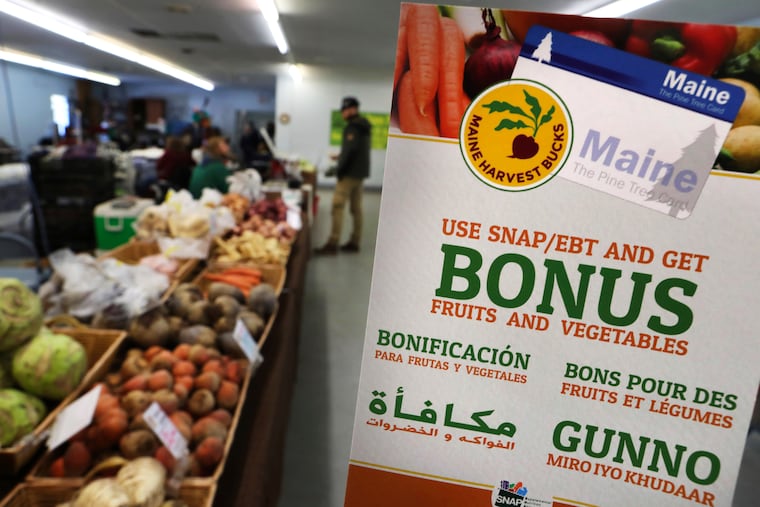Trump administration tightens work requirements for SNAP
The Trump administration said Wednesday it had finalized a new rule tightening work requirements for the Supplemental Nutrition Assistance Program (SNAP), which could cut hundreds of thousands from food stamps.

WASHINGTON - The Trump administration said Wednesday it had finalized a new rule tightening work requirements for the Supplemental Nutrition Assistance Program (SNAP), which could cut hundreds of thousands from food stamps.
The rule would tighten work requirements for able-bodied adults with no dependents, the U.S. Department of Agriculture announced in a call with reporters.
It arrives as part of a broader effort to limit access to the federal safety net. The USDA estimated earlier this year that up to 750,000 individuals would be dropped from SNAP if the proposal took effect.
Under current law, able-bodied adults without dependents can't receive SNAP benefits for more than three months during a three-year period, unless they're working or enrolled in an education or training program for 80 hours a month.
But states can waive this time limit to ensure broader access to food stamps during an uneven economic recovery.
The new rule, which will take effect on April 1, 2020, will tighten the criteria for states applying for such waivers.
Officials say that about 7% of the individuals on SNAP are considered able-bodied adults without dependents (ABWDs) and that the rule will save the government $5.5 billion over five years.
“Americans are generous people,” U.S. Secretary of Agriculture Sonny Perdue told reporters on the call. "This is about restoring the original intent of food stamps . . . moving more able-bodied Americans to self sufficiency.